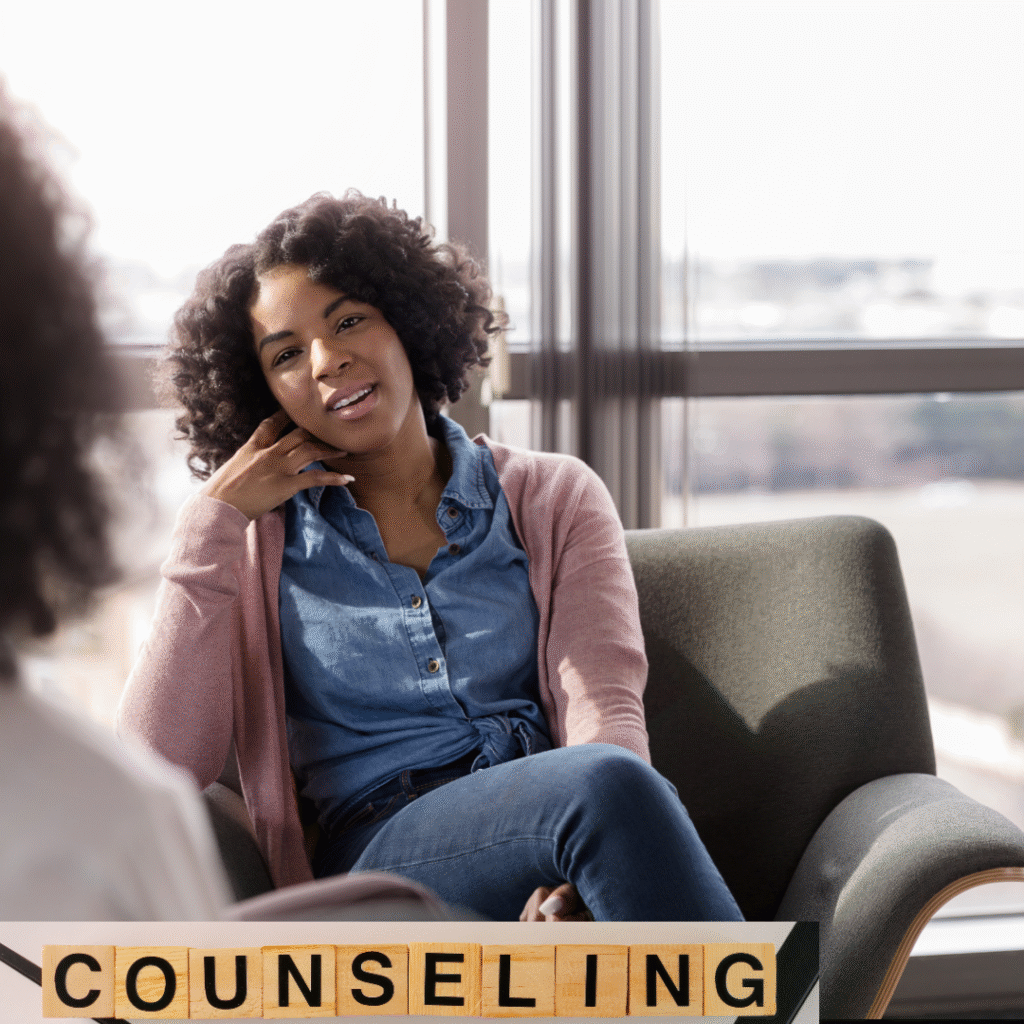Taking the first step toward counselling can feel both empowering and intimidating. You might be wondering what to say, how much to share, or what your therapist will think of you. It’s completely normal to feel uncertain after all, opening up to someone new about your personal thoughts and emotions takes courage.
Your first counselling session isn’t about having all the answers. It’s about beginning a journey toward understanding yourself better, setting goals for your well-being, and finding the right therapist who can support you along the way. Here’s what you can expect, and how to make the most of that first meeting.
Also Read: How to Know If You Need Individual Counselling: A Step-by-Step Guide
Understanding What Happens in Your First Session
That first step into therapy can bring up many emotions such as curiosity, nervousness, even hope. Knowing what typically happens in your first counselling session can help you feel more prepared and confident about the process.
1. Introductions and Setting the Tone
When you walk into your first counselling session or join online your therapist will begin by introducing themselves, explaining their approach, qualifications, and how sessions typically work. This initial conversation helps build comfort and establish professional boundaries so you know what to expect.
You’ll also go over confidentiality, session structure, and what your rights are as a client. Many people feel a sense of relief once this part is explained knowing that what’s shared stays private creates the foundation for trust.
2. Building Rapport and Creating a Safe Space
The first session focuses on building rapport, which simply means getting to know one another and forming a genuine connection. Your therapist wants to understand who you are beyond your struggles, your background, experiences, values, and what brought you to therapy.
Think of this stage as setting the tone for collaboration. In humanistic therapy, for instance, the relationship itself is a vital part of healing. You and your therapist work together as equals, with empathy and openness guiding the conversation.
3. Exploring Your Concerns and Goals
Once introductions are done, your therapist will invite you to share what’s been going on. This isn’t a test there are no “right” or “wrong” answers. You can talk about anything that feels important: stress, relationships, loss, anxiety, or simply feeling stuck.
During this stage, you’ll begin setting goals for your sessions. These goals might sound like:
- “I want to manage my anxiety better.”
- “I want to rebuild my confidence after burnout.”
- “I want to communicate more effectively in my relationships.”
Clear goals help you and your counsellor track progress and shape future sessions around what matters most to you.
4. Managing Expectations
It’s important to manage expectations for your first counselling session. You won’t leave with all your problems solved. Therapy is a process, not a quick fix. The goal of the first session is understanding, not resolution.
You may feel lighter afterward, or a bit emotional both are perfectly normal. Remember that this is just the beginning of a longer journey toward clarity and healing.
5. What to Ask During the Session
Your first session is also your chance to ask questions and learn more about how therapy will work for you. You might ask:
- What type of therapy do you use?
- How long does therapy usually last?
- How will we know if I’m making progress?
- What happens if I miss a session?
These questions help you find the right therapist, someone whose approach and personality feel like a good fit. The better the fit, the more comfortable and effective your therapy will be.
6. Be Open and Honest
Honesty is the heart of counselling. You don’t have to share everything all at once, but try to be open and honest about how you’re feeling. Your therapist isn’t there to judge you, they’re there to understand you and help you make sense of what’s happening beneath the surface.
If something feels uncomfortable or unclear, say so. Counselling works best when both of you communicate openly.
7. After the Session: Reflect and Continue
Once your first session ends, take some time to reflect. How did it feel to talk? Did you feel heard and understood? Do you see yourself opening up more over time? Your counsellor might suggest exercises or reflections to try between sessions.
These are tools to help you apply what you learn in therapy to your daily life. If it feels right, schedule your next session and commit to the process. Consistency and openness are key to meaningful progress.
Tips for Therapists: Making Clients Comfortable
For counsellors themselves, the first counselling session with a client sets the stage for everything that follows. A few helpful tips include:
- Focus on listening more than talking.
- Use simple language to explain therapy methods.
- Be patient as clients find their words.
- Model empathy and authenticity from the very first meeting.
Every small act of understanding helps clients feel safe and valued and that’s where healing begins.
Taking the First Step with Hera Therapy
Your first counselling session is not about perfection, it’s about showing up for yourself. It’s a space where you can breathe, be honest, and start finding clarity in your emotions and decisions.
At Hera Therapy, we understand that taking this step can be intimidating, which is why we offer a warm, confidential environment for every client. Whether you’re managing anxiety, rebuilding confidence, or simply trying to find balance, our counsellors are here to support you through every stage.
Ready to begin your journey? Book your first individual counselling session with Hera Therapy today and take the first step toward healing, understanding, and growth.


Thanks for sharing. I read many of your blog posts, cool, your blog is very good.
Thanks for sharing. I read many of your blog posts, cool, your blog is very good. https://www.binance.com/register?ref=IXBIAFVY
Your article helped me a lot, is there any more related content? Thanks! https://accounts.binance.info/register-person?ref=IXBIAFVY
I don’t think the title of your article matches the content lol. Just kidding, mainly because I had some doubts after reading the article.